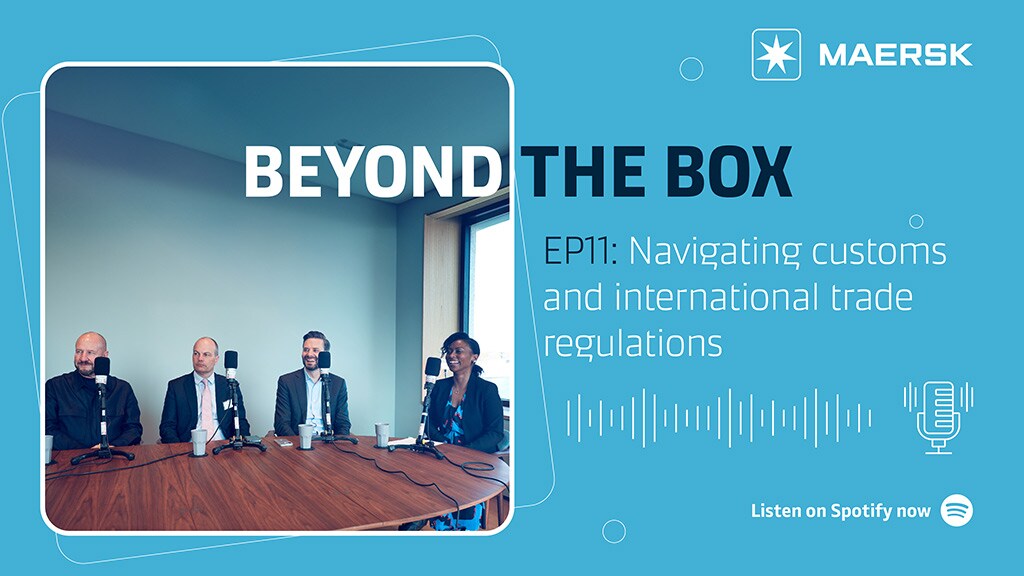The world of international trade and customs has become a complex environment to navigate. As explained in our recent article on navigating trade restrictions, the number of rules and regulations concerned moving goods from one country to another has proliferated in recent years. What does this mean for businesses? What can they expect in the future? And how can they prepare?
In this latest episode of the Beyond the Box podcast, a panel of experts unpacks the most recent trends in international trade and customs. They provide their insights into how businesses can best handle the nearly 3,000 trade regulations the International Monetary Fund (IMF) says are now in place worldwide.
Foreign trade and regulations today
Trade regulations are rules applied to the movement of goods between countries, in other words imports and exports. They can include protective tariffs, import quotas, trade embargoes, sanctions, ESG requirements and voluntary export restraints. At the same time, there are about 361 regional trade agreements (RTAs) in place, which are reciprocal trade agreements between two or more partners, plus more than 500 other technical agreements. According to the OECD, RTAs cover more than half of international trade today, operating alongside global multilateral agreements under the World Trade Organization (WTO).
“There are trade restrictive measures being put in place, but there are also trade facilitation measures being put in place," Dr Ralph Ossa, Chief Economist and Director of the Economic Research and Statistics Divisions at the WTO, tells the podcast. "I think it's important also to see things in perspective. But having said this, I'm also concerned about the situation.”.
The situation being that the number of foreign trade regulations is rapidly growing. In fact, the IMF calculates there are now more than three times the number in place in 2019. The podcast panel unpacks what this means for businesses. Philippe Isler, Director for the Global Alliance for Trade Facilitation at the World Economic Forum, says the trade structure was designed about a decade ago with the goal of being as optimised as possible, but that a lot has changed since.
“Today, the world has moved on,” Mr. Isler explains. “And we are looking at trying to get trade to be fair, to be inclusive, to be socially responsible and to align with environmental concerns. And this is a tall order, of course. So, this is probably one of the reasons why we are getting so many regulations enacted. It's for the good of the planet, but it can feel pretty daunting if you are a private sector company trying to trade around the world.”
Preparing for what’s ahead
Listen to the full episode to get more information and find out for answers to questions including:
- What regulatory developments can businesses expect in the years to come?
- How are newly introduced ESG regulations different from previous trade rules?
- How can businesses best equip themselves to handle trade regulation requirements?
- What are the repercussions for businesses that don’t comply?
Find more episodes of the Beyond the Box podcast on Spotify or Apple Podcasts.
Möchten Sie über anstehende Branchentrends auf dem Laufenden bleiben?
Sie haben es geschafft, willkommen an Bord!
Es tut uns leid, aber beim Senden Ihrer Kontaktanfrage ist ein Problem aufgetreten.
Bitte überprüfen Sie die Formularfelder und stellen Sie sicher, dass alle erforderlichen Informationen korrekt angegeben sind. Wenn das Problem weiterhin besteht, wenden Sie sich bitte an unser Support-Team, um weitere Hilfe zu erhalten.
Möchten Sie über anstehende Branchentrends auf dem Laufenden bleiben?
Erhalten Sie unsere Einblicke direkt in Ihr Postfach, indem Sie sich über dieses Formular anmelden und in eine Welt voll integrierter Logistik einsteigen. Lassen Sie sich von unserer Auswahl an Artikeln inspirieren, die auf Sie zugeschnitten sind, und erhalten Sie mit wenigen Klicks Wissen über relevante Geschäftseinblicke. Sie können sich jederzeit wieder abmelden.
I agree to receive logistics related news and marketing updates by email, phone, messaging services (e.g. WhatsApp) and other digital platforms, including but not limited to social media (e.g., LinkedIn) from A. P. Moller-Maersk and its affiliated companies (see latest company overview). I understand that I can opt out of such Maersk communications at any time by clicking the unsubscribe link. To see how we use your personal data, please read our Privacy Notification.
By completing this form, you confirm that you agree to the use of your personal data by Maersk as described in our Privacy Notification.














